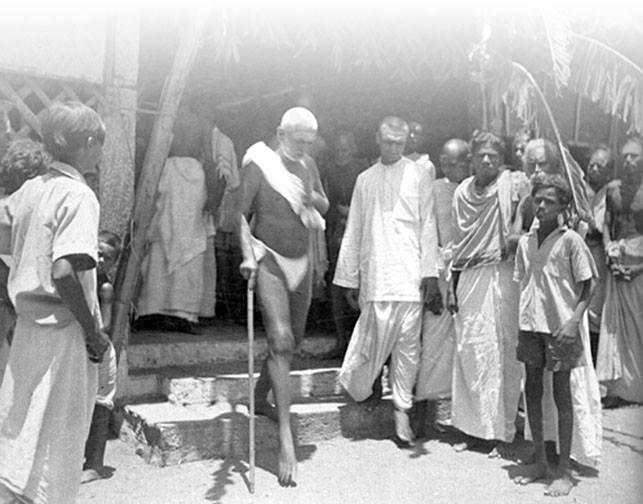705-A Life of Inspiration & Service – Swami Chinmayananda
=========================================================================
Monday, 29 May, 2023. 05:30.
Published from the book – ‘A Life of Inspiration – Swami Chinmayananda’ by Central Chinmaya Mission Trust
Original article published on Chinamaya Upahar in 2018.
=========================================================================
“Only in the silence of quiet mind can you realise your oneness with the supreme reality [Brahman].” - Swami Chinmayananda.
=========================================================================
1. Swami Chinmayananda: How He Taught
Swamiji recast the age-old yajna (fire sacrifice) as a jnana yajna, or ‘knowledge sacrifice,’ wherein the yajna becomes the symbolic burning of one’s ignorance in the fire of knowledge, kindled while listening to the teacher unfold Vedanta as revealed in the sacred texts. The yajna format was used not only in lecture series held in cities throughout the world, but also as part of spiritual camps at which delegates studied together with Swamiji in a scheduled residential setting, free from the interruptions of daily life.
Swamiji’s teachings on the Bhagavad-gita brought it back to life and relevance. Arjuna’s struggle on the battlefield lived again in the field of his listeners minds. Even the Advaita Vedanta of the Upanishads became accessible to all, as Swamiji helped the readers of his books and listeners at his jnana yajnas scale the heights of the scriptures:
With words as his tool, Swamiji worked dynamically for forty-two years to rebuild India from within, heart by heart, soul by soul, because, as he indicated: Reconstruction of a society can begin only from within oneself. Once the personality is rehabilitated, the world, too, is revitalised.
He showed that deep understanding of the scriptures brings reconciliation not only within the individual personality but also within the society. When one knows that not only individuals but the environment around them is all, in essence, the One Reality, he said, “then, in spite of all differences…a sense of oneness, and therefore a sense of reverence , prevails.”
“Inner rehabilitation must begin,” he taught, “with the purification and integration of the personality.”
The emotions in one’s mind and the thoughts in one’s intellect must coexist in perfect balance and harmony. In walking the spiritual path, he said, “Your intellectualism must be sweetened with devotion and reverence; your heartfelt emotions must be reinforced with knowledge. The head and the heart must merge.”
The very action in which you are now employed can be ‘transformed into a process of self-unfoldment, yielding joy and fulfillment in life,’ he said. What transforms mere labour into fulfilling, inspiring way of life is considering action as not what you do, but how you do it; that is, acting without the motivation of personal gain. “The attitude needs to change,” he said, “not the work itself.”
Thus purified, the mind is ready to understand the essential message of Vedanta: Tat-Tvam-Asi (‘That Thou Art’): That wondrous, divine Being whom you have all along regarded as being outside yourself and beyond reach is the very essence of your own true nature. Shorn of ego and desire, you become God-man. Swamiji’s mission was to have us realise that God-man in each one of us.




 4. Swami Chinmayananda – The Vedantin :
4. Swami Chinmayananda – The Vedantin :




Comments
Post a Comment